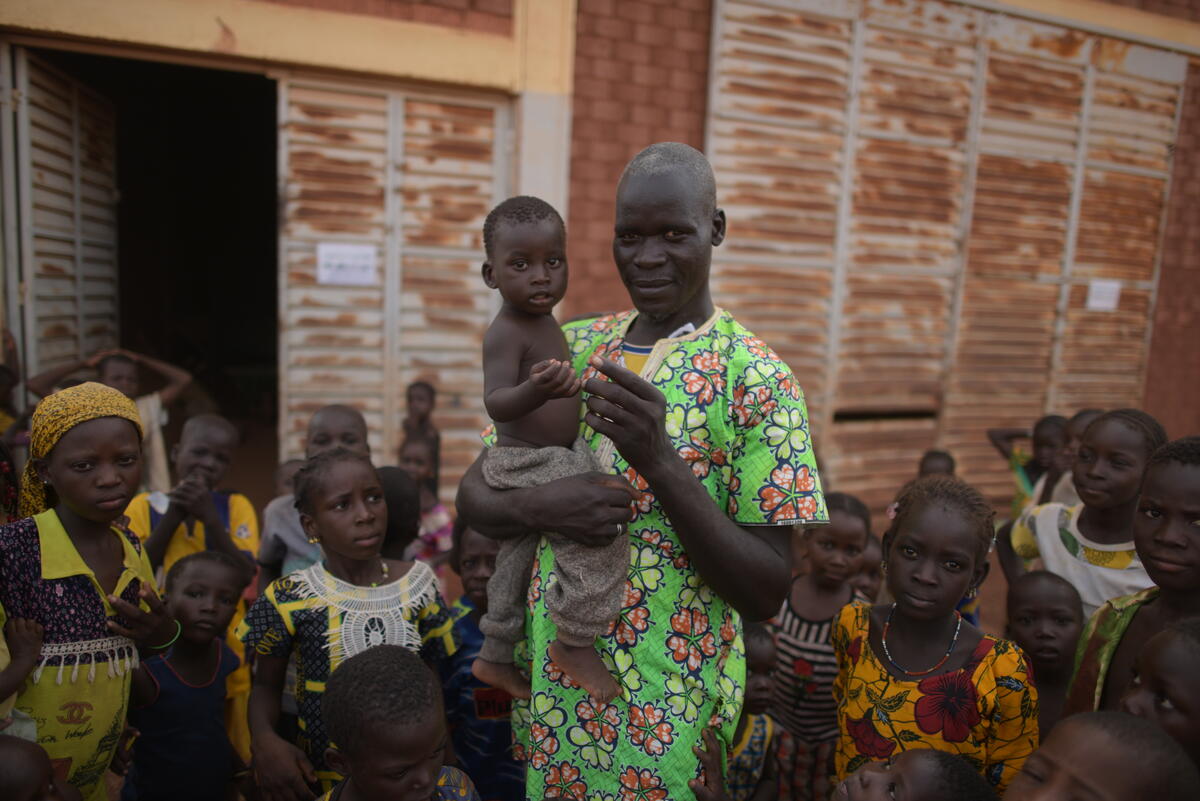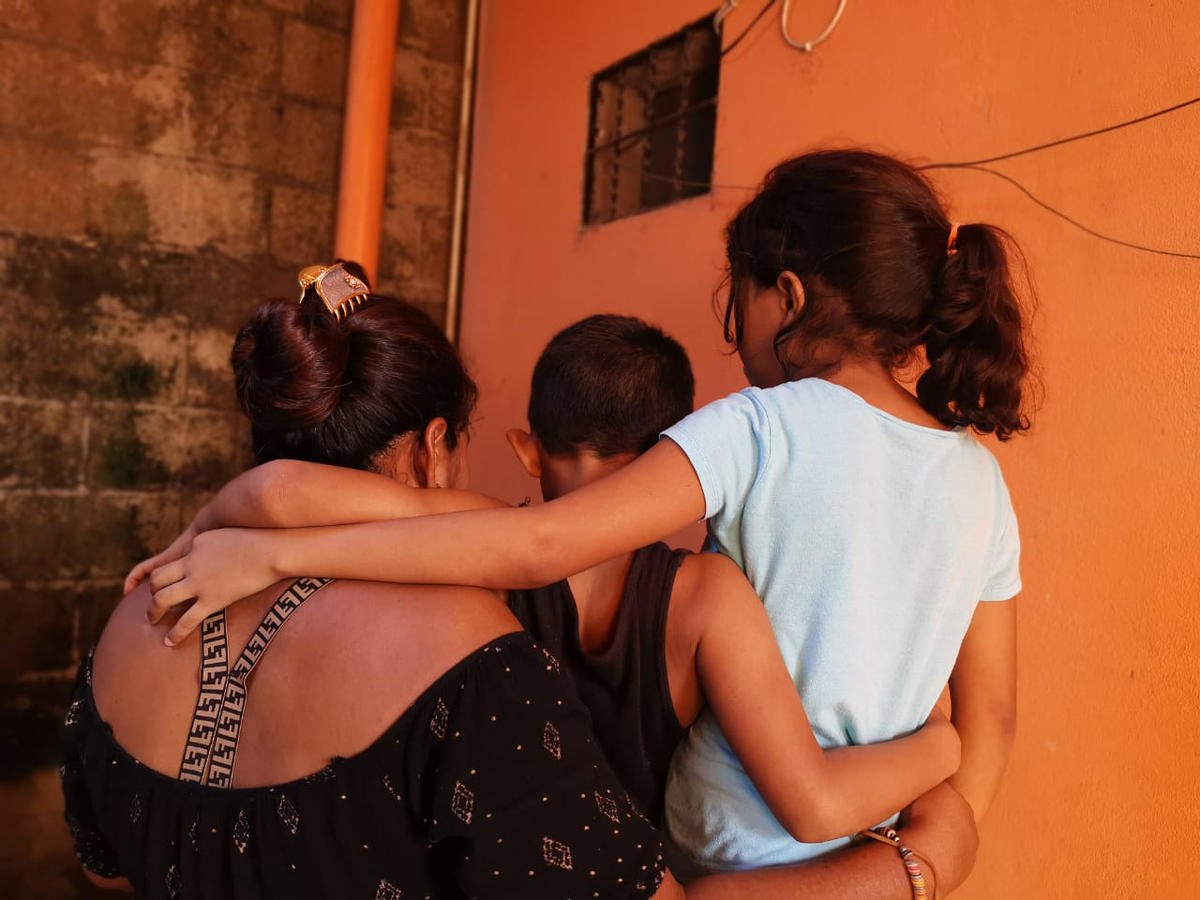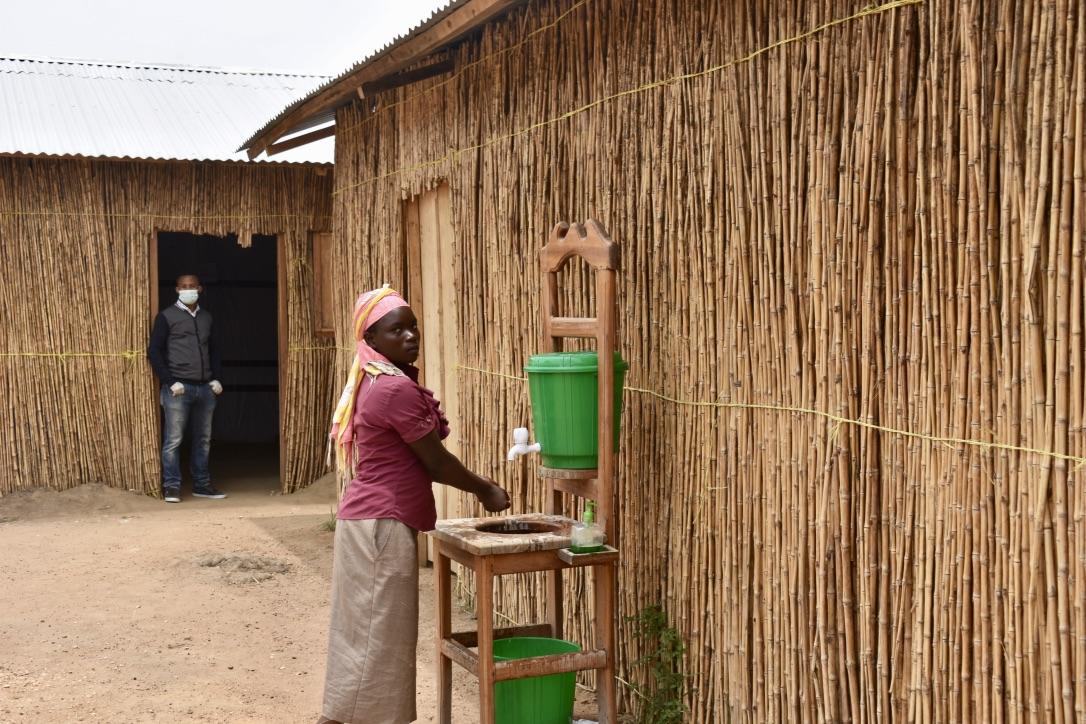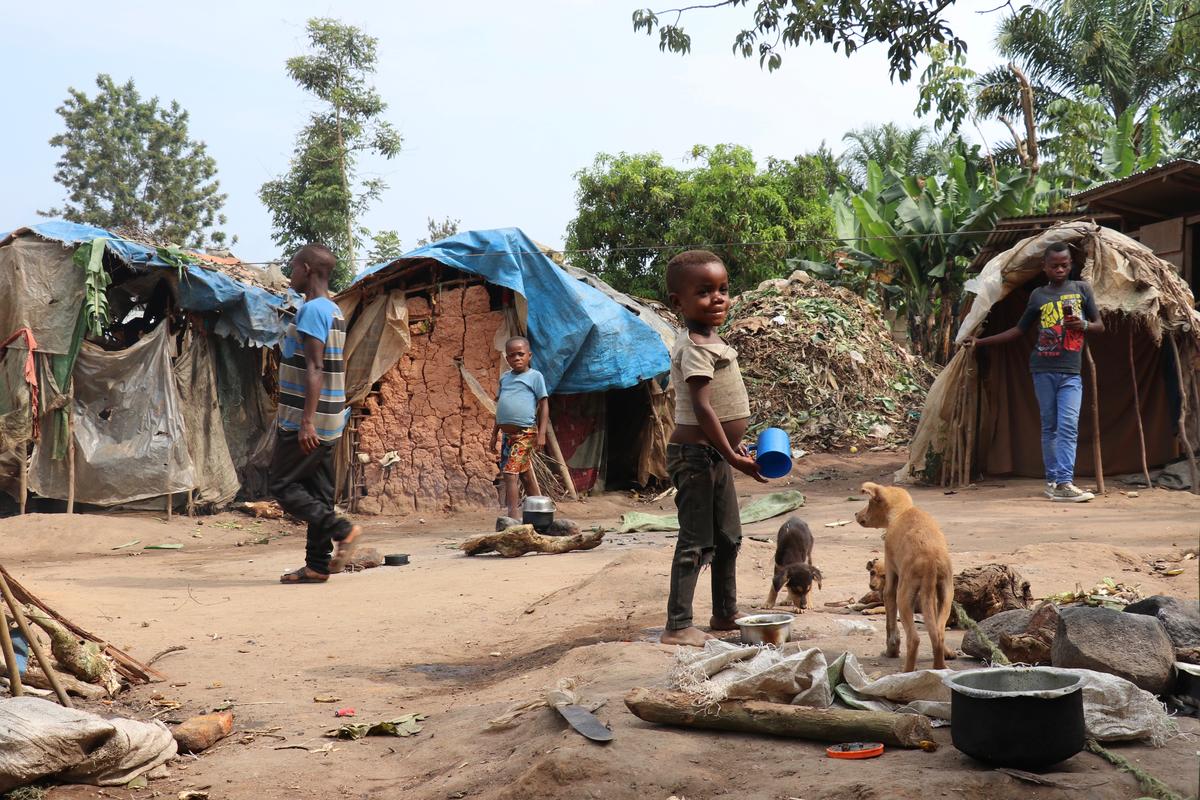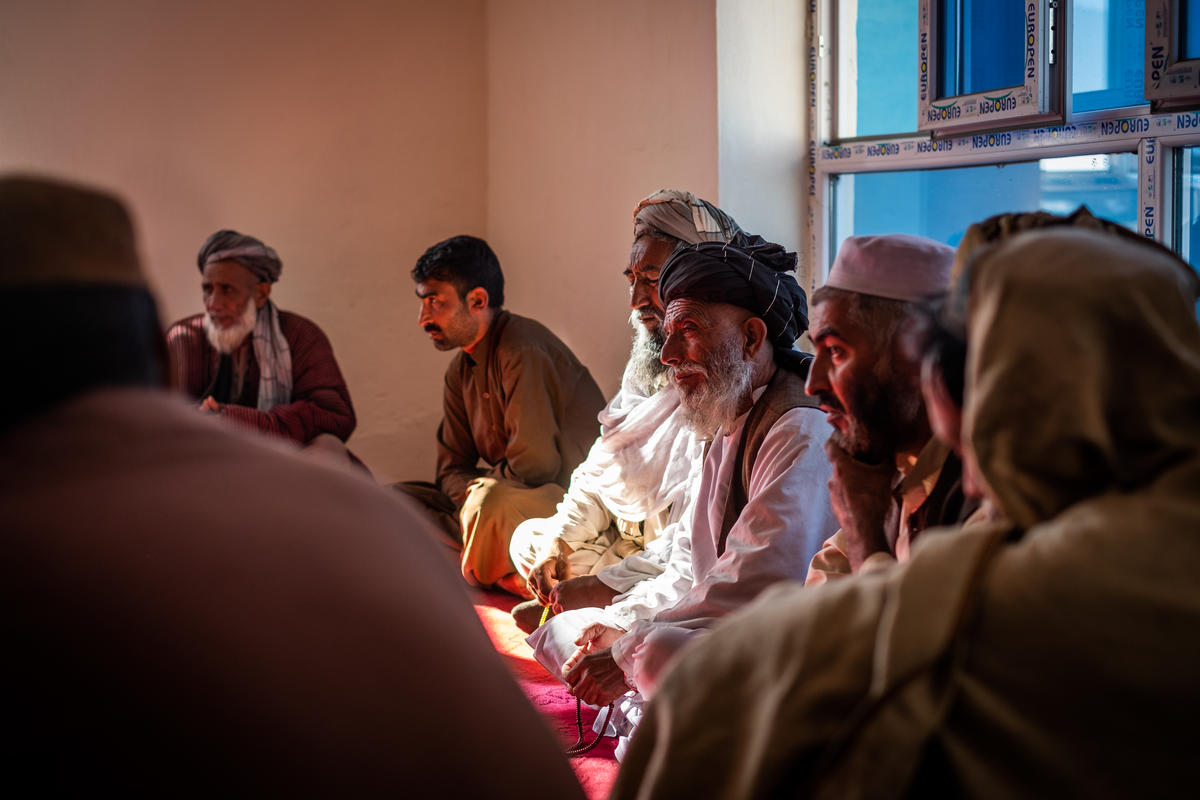Guterres hears refugee plea for strengthened security in volatile eastern Chad
Guterres hears refugee plea for strengthened security in volatile eastern Chad

GOZ AMER REFUGEE CAMP, Chad, December 22 (UNHCR) - Thousands of desperate Darfur refugees and displaced locals in strife-torn south-eastern Chad pleaded with UN High Commissioner for Refugees António Guterres on Friday for better protection against mounting violence that has killed hundreds in the area in recent weeks.
Chanting "security or relocation," refugees lined both sides of a 1-kilometre stretch of dusty road leading into the Goz Amer refugee camp near the south-eastern town of Koukou Angarana as Guterres arrived Friday morning. "Please remove us quickly from here," read a placard waved by one man outside the camp, which houses some 18,000 Darfur refugees. Goz Amer is southernmost in a string of 12 remote camps in eastern Chad that house a total of more than 200,000 Darfur refugees.
Since early November, some 70 villages in south-eastern Chad have been attacked by armed horsemen using tactics identical to those of the notorious Janjaweed militia just across the border in Sudan's Darfur region. The latest series of attacks in the south-east left some 300 Chadians dead and displaced an estimated 15,000 people, bringing to more than 90,000 the total number of Chadians displaced throughout the east over the past year.
Last weekend, more than 40 people died in brutal attacks on several villages in the Koukou Angarana area visited Friday by Guterres. The dead included 10 Darfur refugees from Goz Amer camp and 13 Chadians who had already been displaced from their villages in earlier attacks. The Chadian military has since taken up positions in the area.
Guterres, who has been advocating a strengthened "multi-dimensional" international presence in eastern Chad, visited several of the recently burned and looted villages to speak with local officials and traumatised residents and refugees.
"When we see these villages - burned last week with 40 people killed, and now 90,000 Chadians displaced - one can understand the huge security problem," Guterres said. "The international community has a great responsibility to create a humanitarian space so we can keep working. To do nothing would be unacceptable."
Those lining the road to plead with Guterres included women carrying baskets, cooking pots and sleeping mats and men waving placards and shouting for better protection or relocation elsewhere in Chad where it was safer.
"We don't want to stay, we want to go to another area," one refugee shouted. "We don't want to stay in this prison. Every day the janjaweed are killing us."
While visiting a burned and looted Chadian village, Guterres was told by a local chief that residents wanted to stay on their land but it was becoming increasingly dangerous.
"We don't want to be displaced because this is fertile land," said the sultan, who called for dialogue between the marauding militias and local landowners. "People have been living here together for centuries."
Guterres also met with displaced Chadians at Habile, a sprawling, makeshift camp that houses some 9,000 people - 5,000 of them displaced over the past two months. Habile was attacked last Saturday, leaving six displaced people dead and 83 huts burned.

"Today, we are still afraid; we can't go five kilometres from here," a displaced village chief told Guterres. "The most crucial problem is security. Help us in every way you can to restore security. If you can't give us security, you have to move us from here. We are poor people and we don't have the means to defend ourselves."
During his two-day mission to Chad, Guterres has examined a proposal by Chadian authorities to move the refugee camps in the east some 500-600 km inland, away from the volatile border with Darfur. UNHCR and government experts visited the proposed sites last week and are preparing a report on what's possible and what's not. Relocating refugees further away from the border could improve security, but such a move also requires a suitable environment and infrastructure for hosting more than 200,000 people. Relocating such a huge population over 500 km would also require considerable time, expense and resources - all of which must be carefully considered before a decision is made.
UNHCR is also supporting calls for strengthened security in eastern Chad for refugees, Chadian displaced and civilians, and the aid workers trying to help them. In August, UN Security Council Resolution 1706 called for a "multi-dimensional" presence in Chad consisting of political, humanitarian, military and civilian police liaison personnel in key locations, including in camps for refugees and the internally displaced. A week ago, the Security Council expressed its deep concern at the worsening situation in Sudan and the spillover into Chad and the neighbouring Central African Republic. The Security Council also noted it was awaiting recommendations on improving security in eastern Chad.



